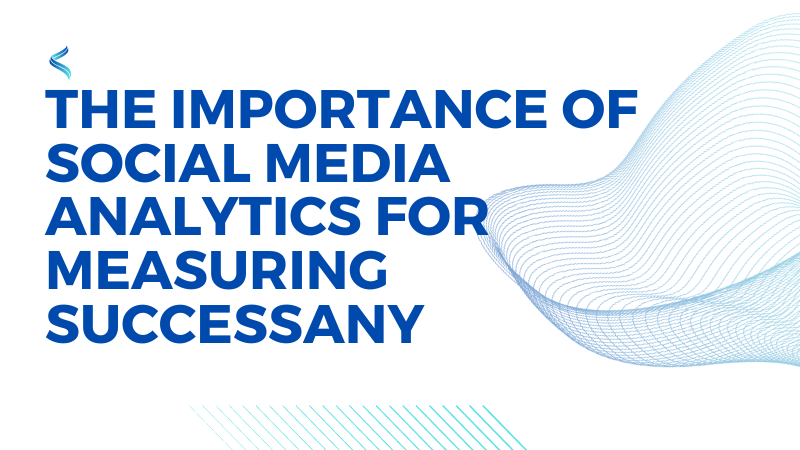
The Importance of Social Media Analytics
the fast-paced world of digital marketing, understanding the impact of your social media efforts is essential for achieving success. One of the most powerful tools at your disposal is social media analytics. In this blog, we'll explore the importance of social media analytics for measuring success, uncovering how data-driven insights can elevate your strategies to new heights.
The Significance of Social Media Analytics
Why It Matters
Social media analytics involves the collection and analysis of data from your social media platforms. This process helps you understand the performance of your content, your audience's behavior, and the effectiveness of your social media strategies. Here's why it's crucial:
Data-Driven Decision Making: Social media analytics provides actionable insights, allowing you to make informed decisions based on concrete data rather than guesswork.
Measuring ROI: By tracking key metrics, you can determine the return on investment (ROI) of your social media campaigns, ensuring your efforts are cost-effective.
Audience Understanding: Analytics reveal valuable information about your audience, including demographics, preferences, and engagement patterns, enabling you to tailor your content.
Strategy Refinement: With analytics, you can identify what's working and what isn't. This allows you to refine your strategies and focus on high-performing content and tactics.
Competitive Advantage: Staying ahead of the competition is crucial in the digital landscape. Social media analytics can uncover opportunities and threats in your market.
Key Metrics in Social Media Analytics
1. Engagement Metrics:
Likes, comments, and shares: Measure audience interaction and interest in your content.
Click-through rate (CTR): Evaluates the effectiveness of your call-to-action.
Conversion rate: Tracks how many users complete desired actions, such as signing up or making a purchase.
2. Reach and Impressions:
Reach measures the total number of people who see your content, while impressions track how often it's displayed.
These metrics help gauge your content's visibility and potential impact.
3. Follower Growth:
Monitor your follower count over time to understand your audience's growth rate.
Sudden spikes or drops can be indicative of successful or problematic strategies.
4. Sentiment Analysis:
Gauge the sentiment of user comments and mentions to understand public perception and identify potential issues.
5. Click Tracking:
Analyze where users are clicking within your posts or website links to optimize user journeys and content placement.
Leveraging Social Media Analytics for Success
1. Set Clear Objectives:
Define specific goals for your social media campaigns, such as increasing brand awareness, driving website traffic, or boosting sales.
2. Choose the Right Metrics:
Select metrics that align with your objectives. For example, if you aim to boost website traffic, focus on CTR and conversion rate.
3. Regular Analysis:
Regularly review and analyze your social media data to spot trends, opportunities, and areas for improvement.
4. Adjust Your Strategies:
Be willing to pivot and optimize your strategies based on the insights gained from social media analytics.
5. Utilize Analytics Tools:
Take advantage of analytics tools provided by social media platforms, as well as third-party tools for in-depth analysis.
Conclusion
Social media analytics is a cornerstone of successful online marketing. It empowers businesses to measure their social media success objectively and make data-driven decisions. By understanding key metrics, setting clear objectives, and leveraging analytics tools, you can optimize your strategies and achieve your goals. In an era where data reigns supreme, social media analytics is your key to unlocking success in the digital landscape.



